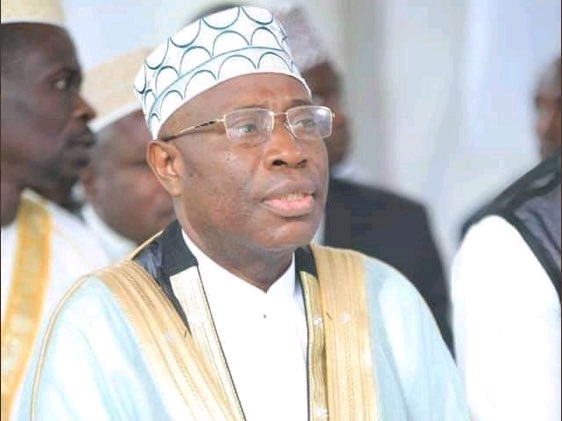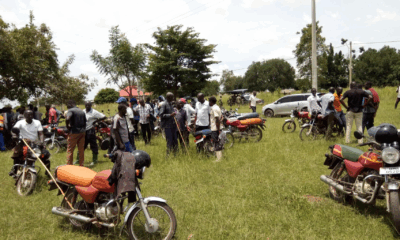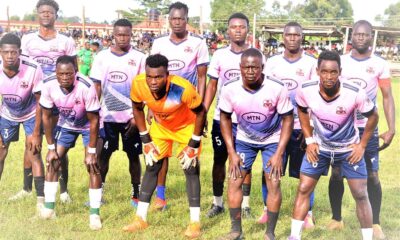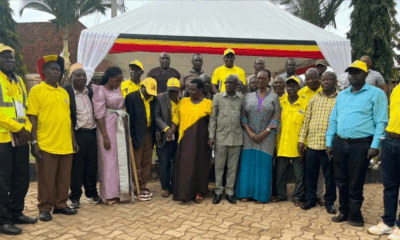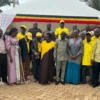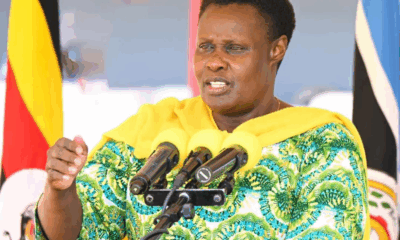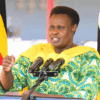News
Who was Sheikh Siliman Kasule Ndirangwa
The Muslim community in Uganda is in profound mourning following the passing of Sheikh Siliman Kasule Ndirangwa, former Supreme Mufti and a towering figure in Islamic scholarship and leadership, who died on Friday evening at Mengo Hospital, Kampala, at the age of 62. He had been battling a prolonged illness.
News of Sheikh Ndirangwa’s demise was confirmed by his family at approximately 7:30 PM, bringing a sombre close to hours of anxious speculation that had circulated on social media earlier in the day. A formal family statement swiftly followed, unleashing a wave of grief and heartfelt tributes from leaders and faithful across the nation.
Born on October 9, 1962, in Kirayangoma, Kisekka Sub-county of present-day Lwengo District, Sheikh Ndirangwa’s journey from humble beginnings to national prominence was marked by an unquenchable thirst for knowledge and an unwavering commitment to his faith. His foundational Islamic education began with Qur’anic studies at Madrasat Noor Kirayangoma, followed by secondary education at Bilal Islamic Institute. His pursuit of deeper understanding led him to Saudi Arabia, where he enrolled at Dar-al-Hadith Makkiyah in Mecca, culminating in a Bachelor’s Degree in Da’wah (Islamic Propagation) from the prestigious Islamic University of Madinah in 1989.
Upon his return to Uganda, Sheikh Ndirangwa quickly became a guiding light within the Muslim community. In 1992, he was appointed Imam of Kibuli Mosque, a pivotal role that placed him at the spiritual heart of one of Uganda’s most significant Islamic institutions. His sermons, renowned for their eloquence, deep scriptural roots, and fearless moral stands, swiftly established him as a revered voice across the country.
By 2000, he ascended to the position of Kampala District Kadhi, representing the Kibuli faction within the Uganda Muslim Supreme Council (UMSC). This era was characterized by growing ideological rifts within Muslim leadership, and Sheikh Ndirangwa’s principled convictions often placed him at odds with the Old Kampala-based UMSC leadership.
The pinnacle of his religious leadership came in 2015, following the death of Supreme Mufti Sheikh Zubair Kayongo, when Sheikh Ndirangwa was selected as Supreme Mufti under the Kibuli-based leadership. He held this esteemed position with unwavering dignity and firm conviction, championing unity within the Muslim community, advocating for Islamic education, promoting Islamic finance, and tirelessly battling moral decay and corruption. He was widely respected for his intellectual clarity and his persistent calls for ethical reform, not only within the Muslim community but across all facets of Ugandan society. He famously challenged sectarianism, always insisting that Islam should be a powerful force for social cohesion and national progress.
In a dramatic and unexpected turn of events on April 1, 2021, Sheikh Ndirangwa publicly resigned from his role live on national television, citing irreconcilable internal conflicts within the Kibuli-based faction. “I have resigned as the Supreme Mufti of Uganda. I have decided for the good of Islam,” he declared during an emotional broadcast that sent shockwaves through the nation.
Even after stepping down from formal leadership, Sheikh Ndirangwa remained deeply committed to his calling. He continued to engage actively in da’wah (Islamic preaching), served as Chairperson of the Association of Imams in the Central Region, and quietly mentored a new generation of religious leaders, leaving an indelible mark behind the scenes.
In recent months, his health had significantly deteriorated, leading to frequent hospitalisations at Mengo Hospital. His passing on Friday leaves an irreplaceable void in Uganda’s religious landscape.
Condolences have poured in from across the religious and political spectrum. Government officials, esteemed scholars, religious leaders, and ordinary Ugandans have taken to social media to express their profound sorrow and celebrate the remarkable legacy of a man widely described as wise, humble, and deeply spiritually grounded.
“Sheikh Ndirangwa was more than a religious leader. He was a moral compass for many in this country,” one tribute from a former government official read, adding, “His legacy will live on through the lives he touched and the institutions he helped shape.”
Sheikh Siliman Kasule Ndirangwa is survived by his wife, children, and grandchildren.
Comments



